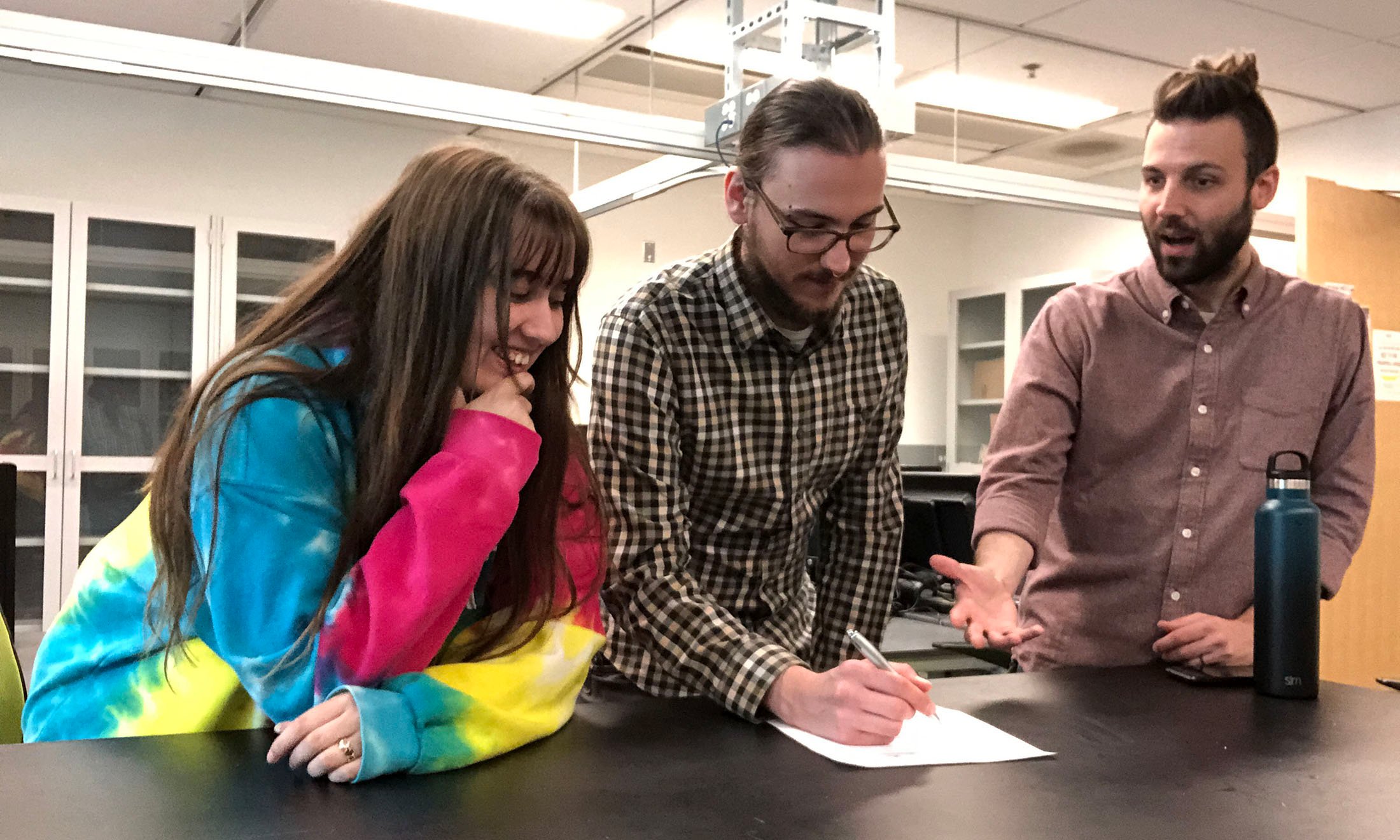Leveling the Field
Dr. Zytko’s proposed software design is aimed to level the risks by allowing women to gain compatibility insight while considering face-to-face meetings with men whom they encounter online
“Men are afraid that women will laugh at them. Women are afraid that men will kill them.” These words of Margaret Atwood, cited by Douglas Zytko, Ph.D., assistant professor of engineering and computer science, capture the essence of the disproportionately unequal, gendered costs of face-to-face meeting decisions in online dating. Dr. Zytko’s proposed software design is aimed to level the risks by allowing women to gain compatibility insight while considering face-to-face meetings with men whom they encounter online.
Online dating is a rather recent phenomenon that reflects the modern trend towards utilizing computers to augment people’s social lives. It enables speedy discovery of numerous potential partners and provides valuable benefits to men and women alike. However, when online daters meet face-to-face, women are much more likely than men to experience physical harm or sexual violence.
“The imbalance in sexual access between men and women leaves women susceptible to physical and psychological harm. Examples include forced sexual contact, such as rape, and retaliatory actions, such as stalking and harassment, when romantic advances are refused or invitations for next meetings declined,” Dr. Zytko explains.
In order to decide whether to meet someone in-person, daters rely on a messaging interface that acts as an evaluation tool. Yet, many existing messaging interfaces don’t effectively meet evaluation needs. “The evaluation process used on dating applications has stayed mostly the same for a long time,” says Nicholas Furlo, CSE teaching assistant and graduate student, who worked with Dr. Zytko on this project. “Unfortunately, given the statistical likelihood of becoming victims of violence, ineffective evaluation disproportionately affects women and minorities.”
According to Dr. Zytko, the problem is that in typical messaging interface designs, users are free to discuss whatever they wish. This gives men the opportunity to assert control and steer the conversation towards topics conducive to their impression management, which can mislead women’s face-to-face meeting decisions.
Dr. Zytko’s project, which involved a number of students from Oakland University and the New Jersey Institute of Technology, materialized in a new interface that guides online conversations so they can better inform face-to-face meeting decisions. This is being accomplished in three ways: 1) the interface provides a conversation topic to users; 2) provided topics are conducive to user evaluation; 3) the interface displays each user’s opinion choice prior to accessing the messaging interface to prevent picking an opinion based on the partner's answer.
When starting a messaging interaction using the interface, users are prompted to discuss a system-selected 78-word scenario concerning a first date and to provide their opinion regarding the actions of one of the daters in this scenario.
The interface did undergo a test study, which took place at a public meeting space in the context of speed dating events. Interestingly, at least three romantic relationships started between the study participants while they were testing the messaging interface.
Dr. Zytko’s study showed that women’s face-to-face meeting decisions do benefit when they are able to discuss a scenario with their messaging partner. However, the design itself wasn’t intended to become a commercializable product. “It is a proof of the concept that dating apps can better support users, particularly women, in managing risks of harm when they choose to transition an online interaction to offline,” Dr. Zytko says.
The messaging interface is just one aspect of Dr. Zytko’s broad research that explores risk-conscious designs of social matching systems. Dr. Zytko’s current project seeks to understand how to curate user behavior data in such social matching systems as Tinder and Bumble, in order to dissuade perpetration of unwanted sexual activity.
Dr. Zytko’s research laboratory, which consists of fifteen students, is open to like-minded individuals who desire to make a difference. For more information, please contact [email protected].

 December 10, 2020
December 10, 2020
 By Arina Bokas
By Arina Bokas









